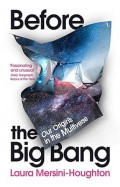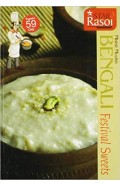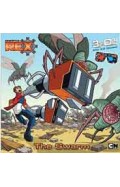How to Think Like a Philosopher - Scholars, Dreamers and Sages Who Can Teach Us How to Live
By: Peter Cave
-
Rs 2,515.50
- Rs 2,795.00
- 10%
You save Rs 279.50.
Due to constant currency fluctuation, prices are subject to change with or without notice.
In showing how the great philosophers of human history lived and thought - and what they thought about - Peter Cave provides an accessible and enjoyable introduction to thinking philosophically and how it can change our everyday lives. He addresses questions such as: Is there anything 'out there' that gives meaning to our lives? Does reality tell us how we ought to live? What indeed is reality and what is appearance - and how can we tell the difference?
This book paints vivid portraits of an assortment of inspiring thinkers: from Lao Tzu to Avicenna to Iris Murdoch; from Hannah Arendt to Socrates and Plato to Karl Marx; from Kierkegaard and Nietzsche to Sartre to Samuel Beckett - and let us not forget Lewis Carroll for some thought-provoking fantasies and Ludwig Wittgenstein for the anguishes of a genius. As well as displaying optimists and pessimists, believers and non-believers, the book displays relevance to current affairs, from free speech to abortion to the treatment of animals to our leaders' moral character.
Cave brings to life these often prescient, always compelling philosophical thinkers, showing how their ways of approaching the world grew out of their own lives and times and how we may make valuable use of their insights today. Now, more than ever, we need to understand how to live, and how to understand the world around us
In showing how the great philosophers of human history lived and thought - and what they thought about - Peter Cave provides an accessible and enjoyable introduction to thinking philosophically and how it can change our everyday lives. He addresses questions such as: Is there anything 'out there' that gives meaning to our lives? Does reality tell us how we ought to live? What indeed is reality and what is appearance - and how can we tell the difference?
This book paints vivid portraits of an assortment of inspiring thinkers: from Lao Tzu to Avicenna to Iris Murdoch; from Hannah Arendt to Socrates and Plato to Karl Marx; from Kierkegaard and Nietzsche to Sartre to Samuel Beckett - and let us not forget Lewis Carroll for some thought-provoking fantasies and Ludwig Wittgenstein for the anguishes of a genius. As well as displaying optimists and pessimists, believers and non-believers, the book displays relevance to current affairs, from free speech to abortion to the treatment of animals to our leaders' moral character.
Cave brings to life these often prescient, always compelling philosophical thinkers, showing how their ways of approaching the world grew out of their own lives and times and how we may make valuable use of their insights today. Now, more than ever, we need to understand how to live, and how to understand the world around us
The Myths We Live By - Adventures in Democracy, Free Speech and Other Liberal Inventions
By: Peter Cave
Rs 1,610.75 Rs 1,895.00 Ex Tax :Rs 1,610.75
How to Think Like a Philosopher - Scholars, Dreamers and Sages Who Can Teach Us How to Live
By: Peter Cave
Rs 2,515.50 Rs 2,795.00 Ex Tax :Rs 2,515.50
Zubin Mehta: A Musical Journey (An Authorized Biography)
By: VOID - Bakhtiar K. Dadabhoy
Rs 892.50 Rs 1,050.00 Ex Tax :Rs 892.50
How to Think Like an Economist: Great Economists Who Shaped the World and What They Can Teach Us
By: Robbie Mochrie
Rs 3,415.50 Rs 3,795.00 Ex Tax :Rs 3,415.50
Bad Blood: Secrets and Lies in a Silicon Valley Startup
By: John Carreyrou
Rs 2,155.50 Rs 2,395.00 Ex Tax :Rs 2,155.50
Da Vinci Vitruvian Man Foiled Journal Flame Tree Notebooks
By: flame tree studio
Rs 2,695.50 Rs 2,995.00 Ex Tax :Rs 2,695.50
Fragile Lives: A Heart Surgeon’s Stories of Life and Death on the Operating Table
By: Stephen Westaby
Rs 2,155.50 Rs 2,395.00 Ex Tax :Rs 2,155.50
Before the Big Bang - The Origin of Our Universe from the Multiverse
By: Laura Mersini-Houghton
Rs 2,515.50 Rs 2,795.00 Ex Tax :Rs 2,515.50
The Origins of Political Order From Prehuman Times to the French RevolutioN
By: Francis Fukuyama
Rs 4,045.50 Rs 4,495.00 Ex Tax :Rs 4,045.50
Manning Up: How the Rise of Women Has Turned Men into Boys
By: Kay Hymowitz
Rs 845.75 Rs 995.00 Ex Tax :Rs 845.75
The Obama Syndrome: Surrender At Home War Abroad
By: Tariq Ali
Rs 1,100.75 Rs 1,295.00 Ex Tax :Rs 1,100.75
The Quest For Meaning: Developing A Philosophy Of Pluralism
By: Tariq Ramadan
Rs 1,185.75 Rs 1,395.00 Ex Tax :Rs 1,185.75
How to Think Like an Economist: Great Economists Who Shaped the World and What They Can Teach Us
By: Robbie Mochrie
Rs 3,415.50 Rs 3,795.00 Ex Tax :Rs 3,415.50
Bad Blood: Secrets and Lies in a Silicon Valley Startup
By: John Carreyrou
Rs 2,155.50 Rs 2,395.00 Ex Tax :Rs 2,155.50
Da Vinci Vitruvian Man Foiled Journal Flame Tree Notebooks
By: flame tree studio
Rs 2,695.50 Rs 2,995.00 Ex Tax :Rs 2,695.50
Fragile Lives: A Heart Surgeon’s Stories of Life and Death on the Operating Table
By: Stephen Westaby
Rs 2,155.50 Rs 2,395.00 Ex Tax :Rs 2,155.50
Before the Big Bang - The Origin of Our Universe from the Multiverse
By: Laura Mersini-Houghton
Rs 2,515.50 Rs 2,795.00 Ex Tax :Rs 2,515.50
Zubin Mehta: A Musical Journey (An Authorized Biography)
By: VOID - Bakhtiar K. Dadabhoy
Rs 892.50 Rs 1,050.00 Ex Tax :Rs 892.50
The Myths We Live By - Adventures in Democracy, Free Speech and Other Liberal Inventions
By: Peter Cave
Rs 1,610.75 Rs 1,895.00 Ex Tax :Rs 1,610.75
How to Think Like a Philosopher - Scholars, Dreamers and Sages Who Can Teach Us How to Live
By: Peter Cave
Rs 2,515.50 Rs 2,795.00 Ex Tax :Rs 2,515.50
How to Think Like an Economist: Great Economists Who Shaped the World and What They Can Teach Us
By: Robbie Mochrie
Rs 3,415.50 Rs 3,795.00 Ex Tax :Rs 3,415.50
Bad Blood: Secrets and Lies in a Silicon Valley Startup
By: John Carreyrou
Rs 2,155.50 Rs 2,395.00 Ex Tax :Rs 2,155.50
Da Vinci Vitruvian Man Foiled Journal Flame Tree Notebooks
By: flame tree studio
Rs 2,695.50 Rs 2,995.00 Ex Tax :Rs 2,695.50
Fragile Lives: A Heart Surgeon’s Stories of Life and Death on the Operating Table
By: Stephen Westaby
Rs 2,155.50 Rs 2,395.00 Ex Tax :Rs 2,155.50
Before the Big Bang - The Origin of Our Universe from the Multiverse
By: Laura Mersini-Houghton
Rs 2,515.50 Rs 2,795.00 Ex Tax :Rs 2,515.50















-120x187.jpg?q6)










-120x187.jpg?q6)











